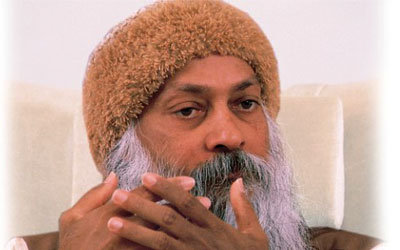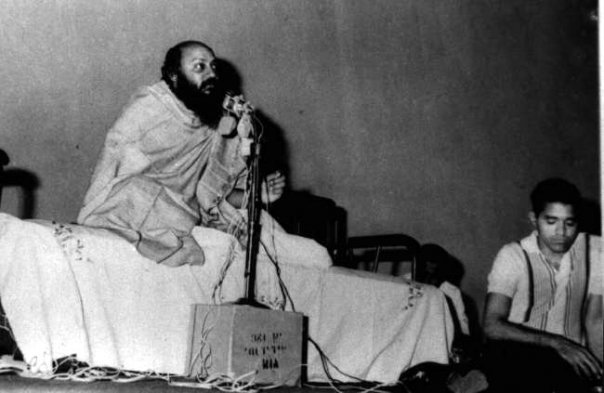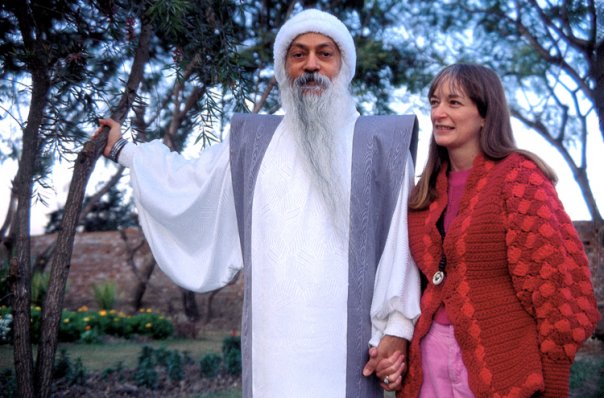Osho Quotes on Philosophy
- A philosopher goes on thinking and thinking, and a religious person goes on dropping thinking. God enters into you through awe.
- Philosophy is against wonder.
- The way of philosophy does not go with truth at all. It is just rational gymnastics. So one philosopher can argue against another philosopher, and they go on arguing for centuries, but they have not come to agreement on a single point. Philosophy is the worst wastage of human intelligence that is possible. When I say I am not a philosopher, I simply mean that my approach towards reality is not through the head, it is through the heart.
- I am not a philosopher. I hate philosophy because it is simply a wastage of time.
- Buddha is very much against philosophy. He says philosophy corrupts, it makes you knowledgeable — without making you a knower it makes you knowledgeable. It brings impurity; it pollutes your inner being. Be pure and never falter from your purity.
- Philosophy is not the real thing, and to be a philosopher is just to go astray. Philosophy only thinks but never experiences, and there are things which cannot be thought about: either you experience them or you don’t. How can you think about truth, of which you have no experience? How can a blind man think about light and colors and rainbows and flowers and butterflies? Whatever he is going to think is going to be wrong.
- Philosophy is a non-existential approach to existence; hence it never comes to any conclusion. It goes round and round but remains stuck in the same groove.
- Wittgenstein says:’Philosophy leaves everything as it is.’ You can become a great philosopher, you can know much, but philosophy leaves everything as it is. Nothing changes through it, it has no revolution in it.
- Philosophy goes on moving in a vicious circle. The philosopher remains inconclusive, and to remain inconclusive your whole life means not to live at all.
- The very attitude of philosophy is to make a problem out of any and every thing. If you are happy — why? That too becomes a problem. How to solve it? If you are sad, of course, why? If you are happy, again: why? It makes no difference to a philosopher what the case is — he creates problems out of it. A philosopher is a problem-creator. First he creates the problems, and then he starts solving them.
- The philosopher is bound to become serious. The deeper he moves into the paths of philosophy, the more serious he will become, because the farther away he is going from life, love, the farther away he is going from beauty, from celebration, from festivity, from laughter.
- Philosophy solves nothing. It promises, but never solves anything — all those promises remain unfulfilled. Still it goes on promising. But the experience which can solve the riddles of the mind cannot be attained through philosophical speculation. Buddha was absolutely against philosophy — there has never been a man more against philosophy than Buddha. Through his own bitter experience he came to understand that all those profundities of philosophy are just superficial. Even the greatest philosopher remains as ordinary as anyone. No problem has been solved by him, not even touched. He carries much knowledge, many answers, but he remains the same in his old age — no new life happens to him. And the crux, the core of the matter is that mind is a question-raising faculty: it can raise any sort of question, and then it can befool itself by answering them. But YOU are the questioner, and YOU are the one who solves them. Ignorance creates questions, and ignorance creates answers — the same mind creating both parts. How can a questioning mind come to an answer? Deep down, the mind itself is the question.
- Gautama the Buddha has no philosophy of life. He is not a philosopher at all. He is a man of insight, he is wise; he knows how to see into life, into reality. He has a way of seeing but not a philosophy of life. He has a way of living but not a philosophy of life. A philosophy of life is a false substitute — it is avoiding transformation of your being. You can learn beautiful words, systems of thought, ideologies, and you can become so much engrossed in them that you can forget totally that you don’t know even yourself, that you don’t know how to see that you are blind, that you have not been able to create light in your heart, that the flame is absent, that you are living in deep darkness; that your life may be very sophisticated, cultured, but it is not true life. You live on the surface; you don’t know its depths and its heights. It has both deep valleys and high peaks, but to reach to those depths and those peaks you will have to pass through an alchemical process. Buddha is an alchemist. He shows you the way how to transform your energies from the lowest to the highest center of functioning, from the mud to the lotus, from the baser metal into gold, from stones into diamonds. He is a scientist of the inner. His approach is utterly scientific, not philosophic at all.
- Philosophy TRIES to know, but never knows. Religion never tries to know, but knows. Philosophy is an exercise in futility, of futility. Yes, it talks about great things — freedom, love, God, meditation — but it only TALKS about. The philosopher never meditates. He talks about meditation, he spins and weaves theories, hypotheses, inferences ABOUT meditation, but he never tastes anything about meditation. He never meditates.
- Philosophy believes in thinking and religion believes in trust. A thinker doubts easily, but cannot trust so easily. A doubting mind is needed to be a philosopher, a very skeptical mind. To be religious deep trust is needed — not at all skeptical, not doubting at all. The philosopher lives through logic; the religious man lives through love.
- Science grows out of doubt. Religion grows out of wonder. Between the two is philosophy; it has not yet decided — it goes on hanging between doubt and wonder. Sometimes the philosopher doubts and sometimes the philosopher wonders: he is just in between. If he doubts too much, by and by he becomes a scientist. If he wonders too much, by and by he becomes religious. That’s why philosophy is disappearing from the world — because ninety-nine percent of philosophers have become scientists. And one person — a Buber somewhere, or a Krishnamurti somewhere, or a Suzuki somewhere — great minds, great penetrating intellects, they have become religious. Philosophy is almost losing its ground.
- The philosopher thinks about love. He does not love, he does not know anything about love. He has not experienced it, but he thinks about it. What can you think about something you have not experienced? And what is the need to think if you have experienced? Hence I am against philosophy. In both ways it is futile. If you have not experienced it, it is futile; if you have experienced it, it is more futile than ever.
- If you follow Plato you will become a philosopher. If you follow Buddha you will become a religious man. Religion is not a philosophy, religion is an experience.
- Philosophy leads nowhere. Answers and answers and answers leading nowhere. Answering so much and not even answering a single question. The basic thing is lacking: the philosopher is not strong enough to say, “I don’t know.”
- Philosophy is a kind of disease — very dangerous, almost incurable. I would like you not to be a philosopher but just a dancer, a singer, a flute player, because they are very close to my world of meditation. My emphasis is to increase your cheerfulness, your laughter, because this world is not for the miserable. This world is not for the people who have become too accustomed to anxiety, anguish. This world belongs to those who live moment to moment in utter ecstasy. Cheerfulness, nonseriousness, a sense of humor to me are very fundamental qualities of a religious being.
- For a philosopher to become religious is a long journey… very very difficult, almost impossible. Seems arduous. His whole being is at stake, he has to destroy himself completely; only then can he become religious. That’s why philosophers have created a game. The name of the game is theology. It is not religion, it is just a trick of philosophers to feel as if they are religious. They have been thinking about truth, beauty, this and that, then they think about God. Theology means logic about THEOS, logic about God. They make God a problem also, and they start thinking about it. Theology is a false religion. It is part of philosophy, it has nothing to do with religion.
- A religious man never becomes a philosopher. It is impossible. It is not in the very nature of things. It is difficult for a philosopher to become religious, because he will have to go back. It is against nature to go back, but it is possible. Rarely it happens, very rarely, but it is possible; one can go back. Much is involved, investment is there — a whole life invested in philosophy; it is difficult to move back. Philosophers, to the very last, go on insisting on their theories, remain confined in them.



